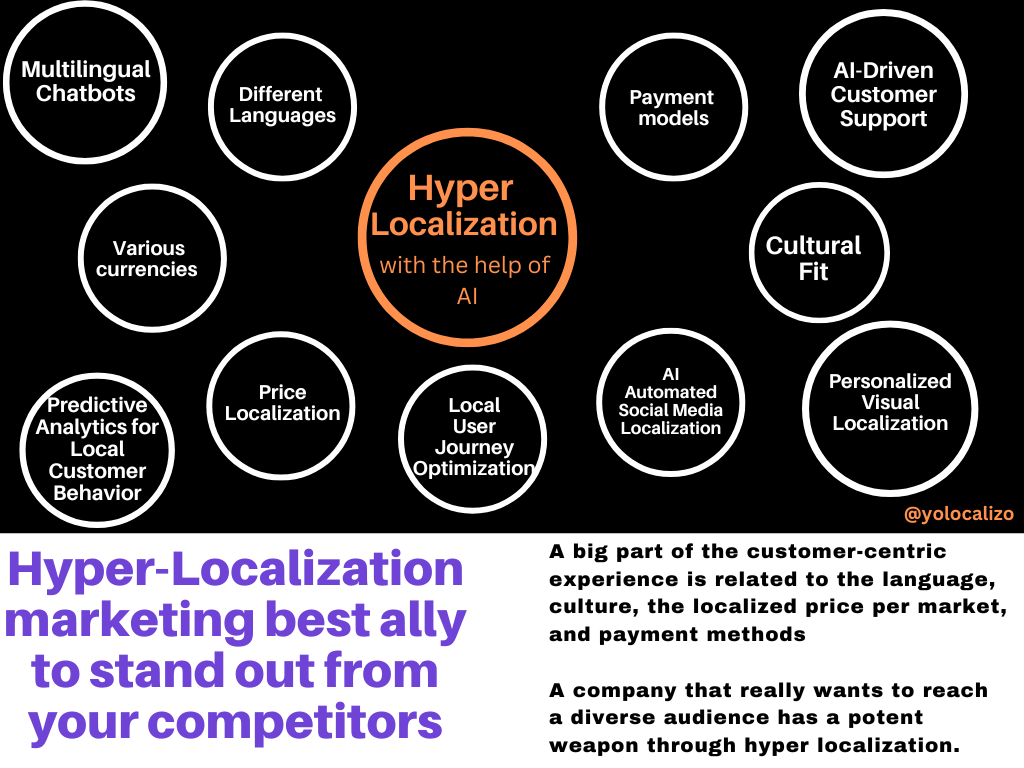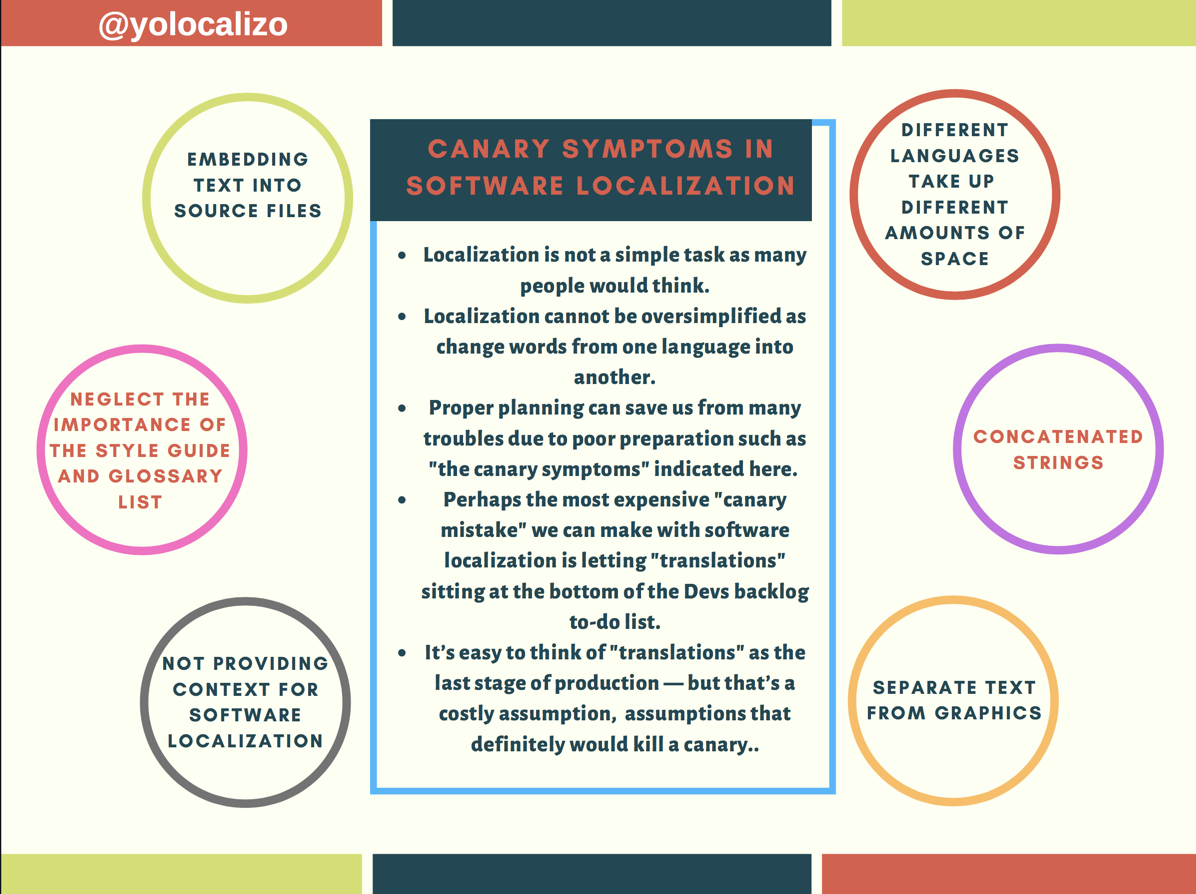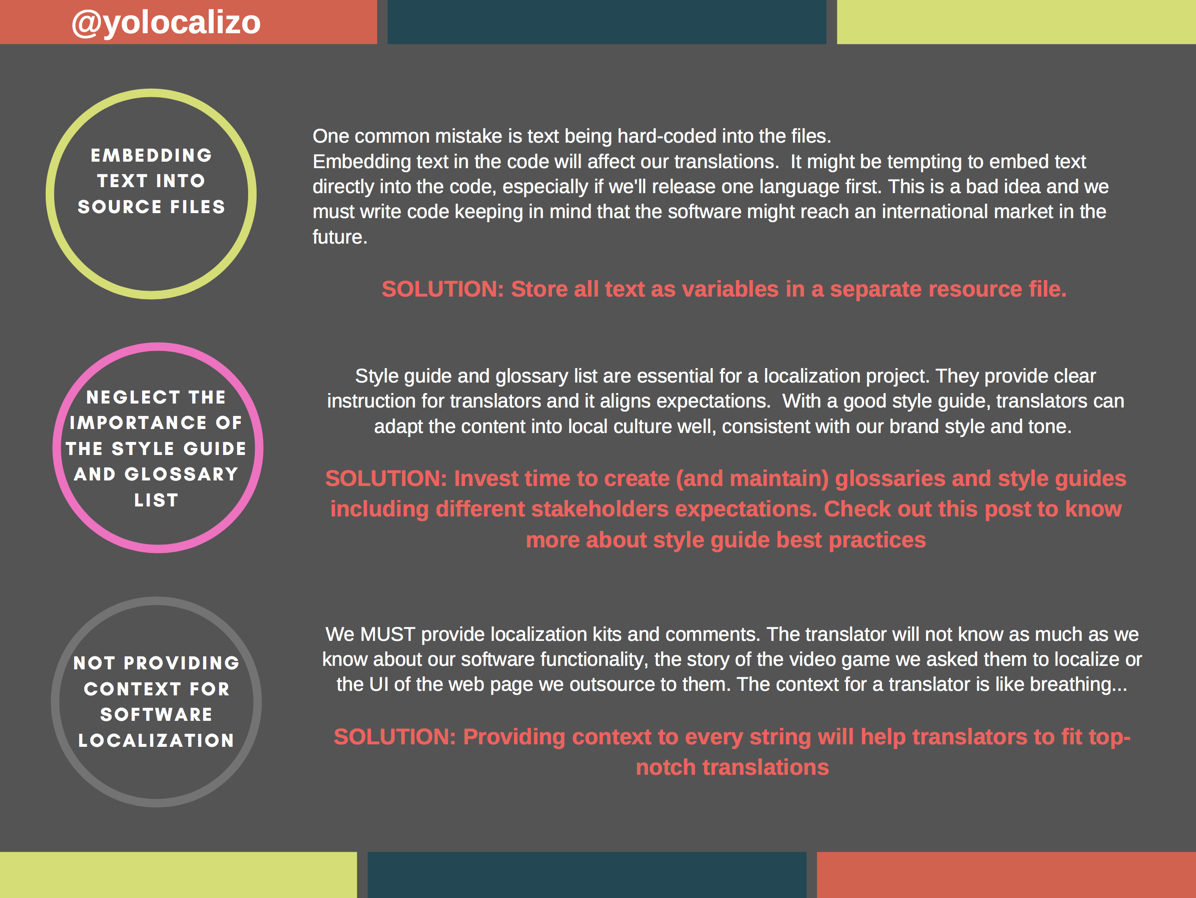Canary symptoms in software Localization - a metaphor of the "Canary in the Coal Mine" story
Improving my English pronunciation is one of the objectives that I decided to redouble my efforts during this year.
Dear English-speaking friends, it's so hard for me to pronounce the past tense of verbs such as "worked", that k+ed sound breaks my tongue 😛 (I should always speak in the present! No look at the past!).
I also find tricky to differentiate the sounds of V vs. B, anyways ... small phonetic issues and sounds that for those of us who come from Latin languages it's not that intuitive, but hey, there is no problem, it is a matter of insisting and continuing to practice. And, in order to practice I'm not alone in my journey. Emily helps me. Emily is a British professor specialized in phonetics who gives me weekly classes through the Verbling platform; if you are interested in learning languages check out the Verbling website/app; it works very well to learn online languages!
Well, the fact is that the other day Emily at a certain moment in the class mentioned the expression "A canary in a coal mine"; and she explained me a fascinating story of British miners who used birds, specifically canaries to detect carbon monoxide.
Apparently, canaries are good early detectors of carbon monoxide because they're vulnerable to airborne poisons; if there was any methane or carbon monoxide in the mine, the canary would die before the levels of the gas reached those hazardous to humans.
I did not know anything about this! And I Google it a little bit more after my phonetic class to know more about such an amazing story (HERE more about The Story of the Real Canary in the Coal Mine)
CLICK HERE TO DOWNLOAD THE PDF INFOGRAPHIC
This anecdote, this metaphor has been used ever since as an indicator of "advanced warning of some danger"
After reading more about the canaries story I was thinking that it would be great to have an "army of canaries" in the Globalization industry and to detect "the poison" in a localization project before something bad happens later. Well, it is true, that we do not have "canaries" in our projects, but we do have best practices and years of accumulated experiences about mistakes to avoid when we embark on a globalization project.
For this reason, and using the metaphor of the canaries I have prepared the following infographic which are the 6 symptoms that the project in which we are smell "danger"; and if we do not do something soon, things will get worse.
After all these years working in different projects during my career, there is something crystal clear to me.
“Cutting corners on translation only creates more work further down the line; and that means spending not only more hours re-working certain tasks but also spending more money, too.”
Have a great week ahead everyone!
@yolocalizo

















Usually, when we want to improve something in our Localization strategy, we first set an ambitious goal. From there, we design a strategy to reach it as quickly as possible. If we don't see rapid changes, we feel like we're not improving. To break this cycle, we can try changing the way we set goals—smaller, but consistent objectives that, when we look back, show us that we are indeed making progress. This progress can be the driving force for us every week, every month, every year.
Here are some ideas on how we could apply this Kaizen methodology in the Localization world.